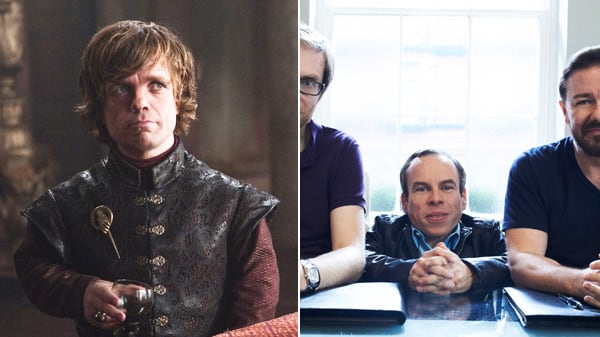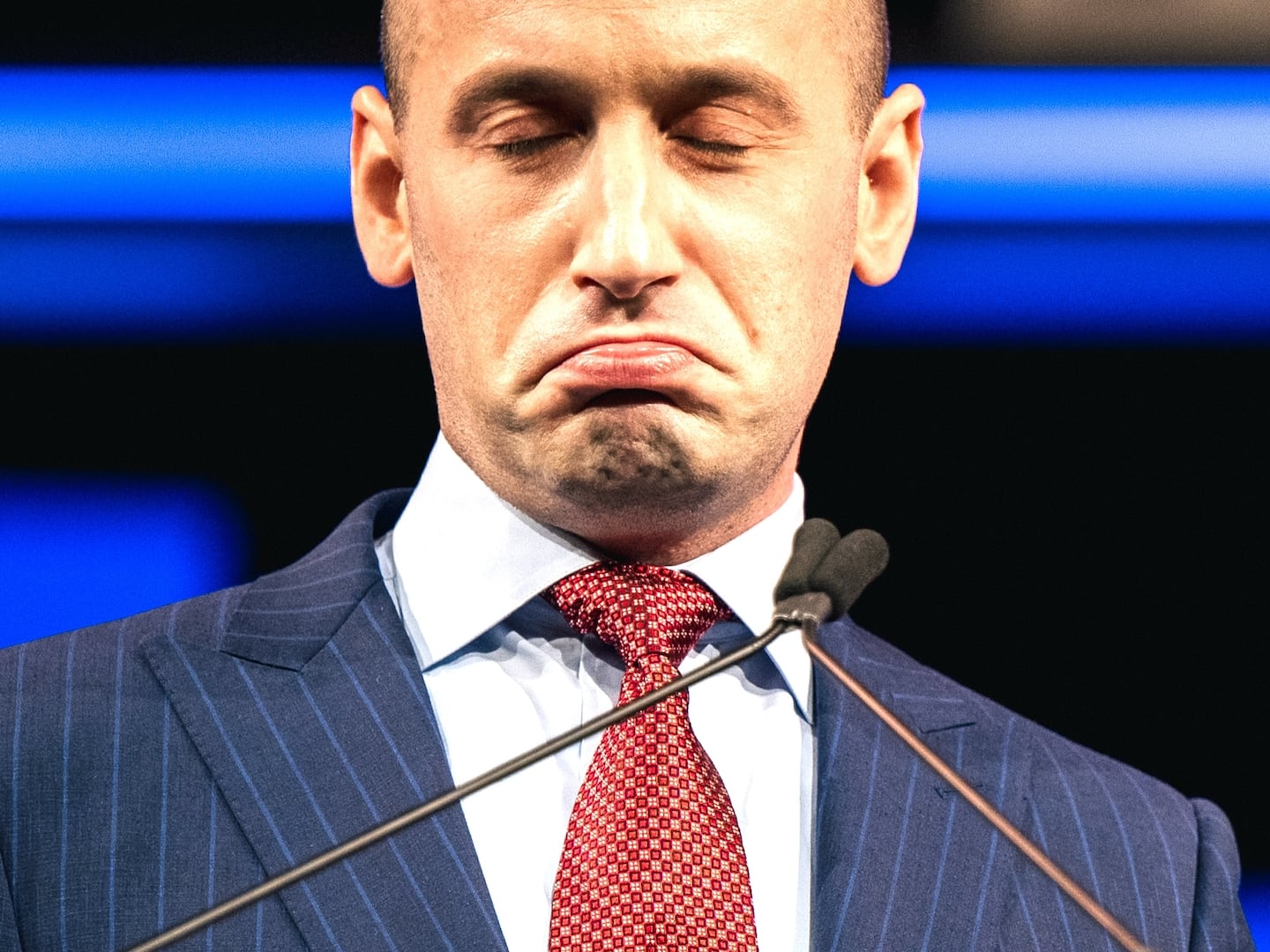When Game of Thrones’ Peter Dinklage won the Golden Globe for Best Supporting Actor last month, he used the award show’s significant global viewing audience to name-check Martin Henderson, to whom he dedicated his award.
While millions of viewers raced to Google Henderson at Dinklage’s suggestion, it quickly became clear that he was not speaking of the Australian actor (who costarred in The Ring), but rather a 37-year-old English dwarf who was the victim of a vicious pub attack in October that left him forced to use a wheelchair and crutches after a patron tossed him through the air.
The attack against the 4-foot-2 Henderson was news to Americans, but it came on the heels of a well-publicized incident in the U.K., in which media reports surfaced that England’s rugby World Cup team had attended a dwarf-tossing event in New Zealand. Henderson has indicated that the two incidents could be related, with the rugby players’ behavior perhaps giving his attacker the idea. (Dwarf tossing is currently illegal in several U.S. states, including New York and Florida.)
Given that the majority of awards-show acceptance speeches are laundry lists of thanks, it was refreshing to see Dinklage use the opportunity to shine a spotlight on a story of which few were aware. Dinklage, best known until now as the star of The Station Agent, was born with achondroplasia, a genetic disorder that causes dwarfism, and at 4 foot 5 is just slightly taller than Henderson. He currently stars as Tyrion Lannister on the HBO fantasy drama Game of Thrones (based on the A Song of Ice and Fire novels by George R.R. Martin), and has so far won an Emmy and a Golden Globe for his portrayal of the cunning, ruthless, and charismatic schemer.
Dinklage’s win is all the more important given the audience’s very limited exposure to dwarfs in the media. While the Munchkins of The Wizard of Oz, the Oompa-Loompas of Charlie and the Chocolate Factory, and Fantasy Island’s Tattoo (Hervé Villechaize) all exist as cultural touchstones, most audience encounters with dwarfs are limited to seeing them as mythical creatures in science-fiction/fantasy films or in reality television. The latter category includes Amy and Matt Roloff and their family on TLC’s Little People, Big World, the subjects of Animal Planet’s docudrama Pit Boss, and The Amazing Race contestant Charla Baklayan Faddoul. (Verne Troyer and Jason “Wee-Man” Acuna are two additional examples of mainstream individual fame or notoriety, while Seinfeld featured Danny Woodburn's dwarf character, Mickey Abbott, in several episodes, and HBO’s Carnivàle boasted Michael J. Anderson as a series regular.) In fact, there are very few three-dimensional depictions of dwarfs, with Dinklage’s turns as The Station Agent’s Finbar McBride and Tyrion Lannister being notable exceptions for the fact that neither was a mythological creature and both had deep inner lives that resonated on the screen.

Game of Thrones returns April 1 for its second season, in which Dinklage’s character—who suffers the unflattering sobriquet of The Imp—will be front and center. Tyrion tends to be underestimated by the majority of people he encounters, many of whom mistake his physical stature for weakness, but in fact he’s one of the most compelling and strong characters in the entire series. (“A very small man,” as we’re told in Season 2, “can cast a very large shadow.”)
Which makes it all the more surprising that HBO, which created Game of Thrones, also airs Life’s Too Short, the latest Ricky Gervais–Stephen Merchant comedy series, which launches on Sunday. Life’s Too Short, which aired last year in the U.K. on BBC Two, follows the adventures of the semi-well-known dwarf actor Warwick Davis (Willow, the Leprechaun movies), who plays an unflattering fictionalized version of himself.
Where Game of Thrones succeeds at subverting the audience’s expectations of Tyrion Lannister—allowing his physical dimensions not to dictate his stature as a man—Life’s Too Short seems to take two leaps backward, portraying “Warwick” as a short-statured egomaniac and loser who too often is literally shoved into a garbage can or a toilet (to name two instances from the first few episodes) or is portrayed as falling out of his giant SUV or attempting to squeeze through a dog flap.
The effect isn’t humorous but instead cringe-inducing, and not in the way that we’ve come to expect from the emotionally complex and uncomfortable comedy of Gervais and Merchant, as demonstrated in both The Office and Extras. Here, Davis appears to be mimicking Gervais as The Office’s David Brent, boorish and unable to read social cues or exhibit any sense of empathy. He’s a Napoleon Complex–afflicted creep who profits from his business, a casting agency for dwarfs (the real-life Davis owns a similar business), whom he belittles and objectifies—that is, when he’s not stealing their gigs.
It’s the objectification that’s the most troubling. In one instance on the show, “Warwick” has to deal with an unhappy client involved in a dwarf-bowling gig. In another, Helena Bonham Carter refuses to look at “Warwick” while she’s shooting a scene in which he’s standing in for a child actor. At first, she demands that he crouch behind a garbage can painted with a monstrous visage, before the director, at Bonham Carter’s insistence, forces him to climb in. He’s later left in the refuse bin when he’s abandoned by the crew. It’s unclear whether we’re meant to laugh at the un-PC situation, at “Warwick” in the garbage can, at the hysteria of Bonham Carter, or all three. The comedy within Life’s Too Short is meant to be subversive, but the fact remains that we’re not laughing at all, not least of all because it’s not funny. If I wanted to watch a highly paid celebrity humiliate a little person, I'd watch Chelsea Handler degrade her "diminutive partner-in-crime" Chuy Bravo on Chelsea Lately.
At the Television Critics Association’s Winter Press Tour last month, Gervais was asked about uncomfortable topics, such as a scene with Liam Neeson in which Neeson, playing himself, keeps making AIDS jokes in Life’s Too Short. “I deal in taboo subjects, particularly in standup, because I want to take the audience to a place they haven’t been before,” Gervais said. “And no harm can come of taboo subjects. And when people say it’s sort of outrageous or sick or pushing the boundaries, I don’t see that it is. I think some people confuse the target of a joke with the subject of a joke. You can have jokes about race without being racist, etcetera, which we’ve always done. And I think sometimes people flinch too soon. And very often, the target is people’s prejudices or the character’s stupidity.”
“Warwick” is designed to be intensely unlikable and unsympathetic, rather than engaging. As a result, any small triumphs he might encounter feel entirely hollow. It doesn’t help that Davis himself reportedly came up with the idea for Life’s Too Short and is credited as co-creator with Gervais and Merchant; it feels a bit like the equivalent of a little-person minstrel hour. Rather than empower “Warwick,” the show seems to relish knocking him down a peg or three, diminishing him further still. Both “Warwick” and Dinklage’s Tyrion are meant to be manipulative conspirators, but it’s the latter who casts off society’s expectations to emerge the untrammeled victor, while “Warwick” is metaphorically dancing for coins.
“This man is manipulative,” Gervais told the TCA press about Davis’s on-screen persona. “He’s exploitive. He’s jealous. We have to make him an awful person, because Warwick, his screen presence is adorable. He’s drenched in humanity, and we had to make him like a Hitler for you to get the gag.
“There’s just nothing he won’t do. We can dress him up, throw him around, make him climb bookshelves. I was shoving him down a toilet; that’s a good day’s work.”
Merchant believes, however, that because Davis’s character is hoist by his own petard, it explains away the innate unpleasantness that follows. “He shouldn’t have been in a giant car that he has to fall out of,” Merchant said at the same press conference. “It was his own fault because of his ego he’s bought this great big SUV. He doesn’t need to get something from a high shelf; he can ask. But because he’s got this chip on his shoulder, he needs to climb it to make a point.”
But is it Warwick’s ego that forces him to be put in a toilet or a garbage can? Gervais and Merchant have a tendency to write horrible characters who do horrible things, granting viewers the ability to laugh at their misfortunes without feeling guilty. But where is the line? Is seeing Warwick in a garbage can servicing the character, or is it done because, from Gervais and Merchant’s perspective, it’s funny to see a dwarf put in a garbage can?
The answer is decidedly unclear. But what’s apparent is that the effort to wring jokes out of Life’s Too Short is very much at the expense of the dignity of all involved, not least of all Warwick Davis. And it’s impossible not to wonder what Dinklage will make of Life’s Too Short, especially after his Golden Globes speech.






